第143章
1. The Meaning of Taboo.
THUS in primitive society the rules of ceremonial purity observed by divine kings, chiefs, and priests agree in many respects with the rules observed by homicides, mourners, women in childbed, girls at puberty, hunters and fishermen, and so on. To us these various classes of persons appear to differ totally in character and condition; some of them we should call holy, others we might pronounce unclean and polluted. But the savage makes no such moral distinction between them; the conceptions of holiness and pollution are not yet differentiated in his mind. To him the common feature of all these persons is that they are dangerous and in danger, and the danger in which they stand and to which they expose others is what we should call spiritual or ghostly, and therefore imaginary. The danger, however, is not less real because it is imaginary; imagination acts upon man as really as does gravitation, and may kill him as certainly as a dose of prussic acid. To seclude these persons from the rest of the world so that the dreaded spiritual danger shall neither reach them nor spread from them, is the object of the taboos which they have to observe. These taboos act, so to say, as electrical insulators to preserve the spiritual force with which these persons are charged from suffering or inflicting harm by contact with the outer world.
To the illustrations of these general principles which have been already given I shall now add some more, drawing my examples, first, from the class of tabooed things, and, second, from the class of tabooed words; for in the opinion of the savage both things and words may, like persons, be charged or electrified, either temporarily or permanently, with the mysterious virtue of taboo, and may therefore require to be banished for a longer or shorter time from the familiar usage of common life. And the examples will be chosen with special reference to those sacred chiefs, kings and priests, who, more than anybody else, live fenced about by taboo as by a wall. Tabooed things will be illustrated in the present chapter, and tabooed words in the next.
2. Iron tabooed.
IN THE FIRST place we may observe that the awful sanctity of kings naturally leads to a prohibition to touch their sacred persons. Thus it was unlawful to lay hands on the person of a Spartan king: no one might touch the body of the king or queen of Tahiti: it is forbidden to touch the person of the king of Siam under pain of death; and no one may touch the king of Cambodia, for any purpose whatever, without his express command. In July 1874 the king was thrown from his carriage and lay insensible on the ground, but not one of his suite dared to touch him; a European coming to the spot carried the injured monarch to his palace. Formerly no one might touch the king of Corea; and if he deigned to touch a subject, the spot touched became sacred, and the person thus honoured had to wear a visible mark (generally a cord of red silk) for the rest of his life. Above all, no iron might touch the king's body. In 1800 King Tieng-tsong-tai-oang died of a tumour in the back, no one dreaming of employing the lancet, which would probably have saved his life. It is said that one king suffered terribly from an abscess in the lip, till his physician called in a jester, whose pranks made the king laugh heartily, and so the abscess burst. Roman and Sabine priests might not be shaved with iron but only with bronze razors or shears; and whenever an iron graving-tool was brought into the sacred grove of the Arval Brothers at Rome for the purpose of cutting an inscription in stone, an expiatory sacrifice of a lamb and a pig must be offered, which was repeated when the graving-tool was removed from the grove.
As a general rule iron might not be brought into Greek sanctuaries. In Crete sacrifices were offered to Menedemus without the use of iron, because the legend ran that Menedemus had been killed by an iron weapon in the Trojan war.
The Archon of Plataea might not touch iron; but once a year, at the annual commemoration of the men who fell at the battle of Plataea, he was allowed to carry a sword wherewith to sacrifice a bull. To this day a Hottentot priest never uses an iron knife, but always a sharp splint of quartz, in sacrificing an animal or circumcising a lad. Among the Ovambo of South-west Africa custom requires that lads should be circumcised with a sharp flint; if none is to hand, the operation may be performed with iron, but the iron must afterwards be buried. Amongst the Moquis of Arizona stone knives, hatchets, and so on have passed out of common use, but are retained in religious ceremonies. After the Pawnees had ceased to use stone arrow-heads for ordinary purposes, they still employed them to slay the sacrifices, whether human captives or buffalo and deer. Amongst the Jews no iron tool was used in building the Temple at Jerusalem or in making an altar. The old wooden bridge (Pons Sublicius) at Rome, which was considered sacred, was made and had to be kept in repair without the use of iron or bronze. It was expressly provided by law that the temple of Jupiter Liber at Furfo might be repaired with iron tools. The council chamber at Cyzicus was constructed of wood without any iron nails, the beams being so arranged that they could be taken out and replaced.